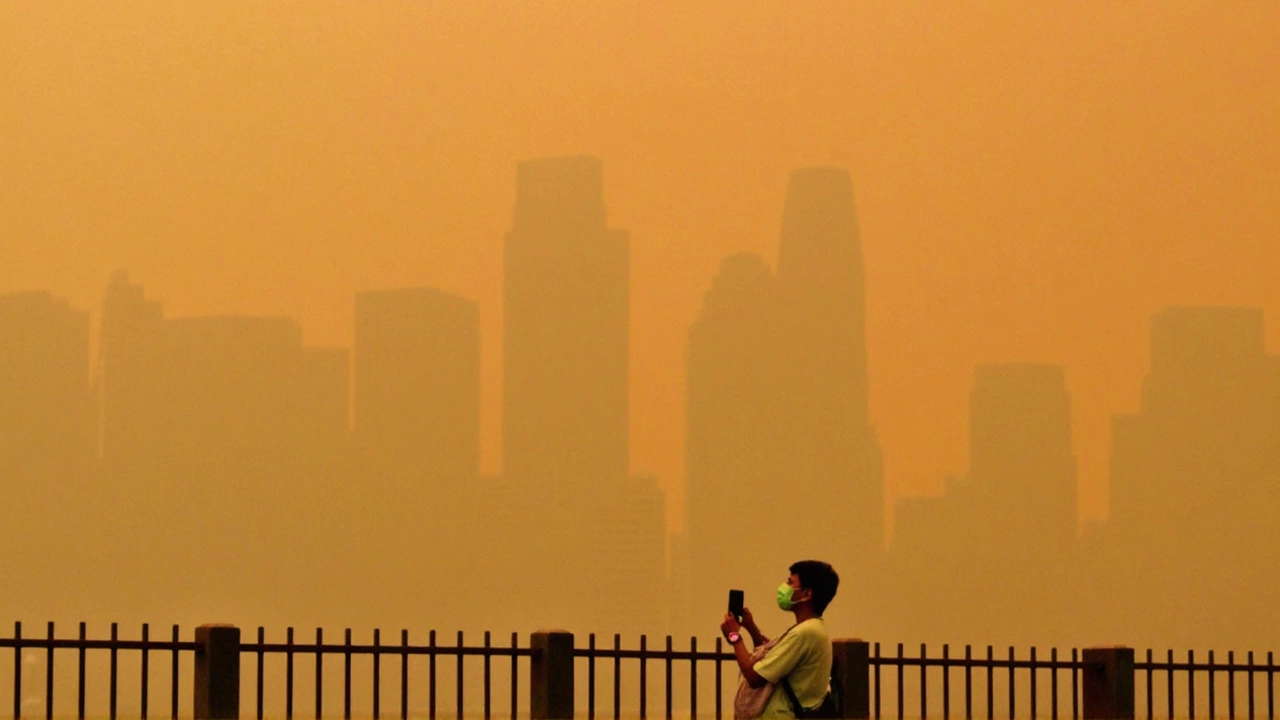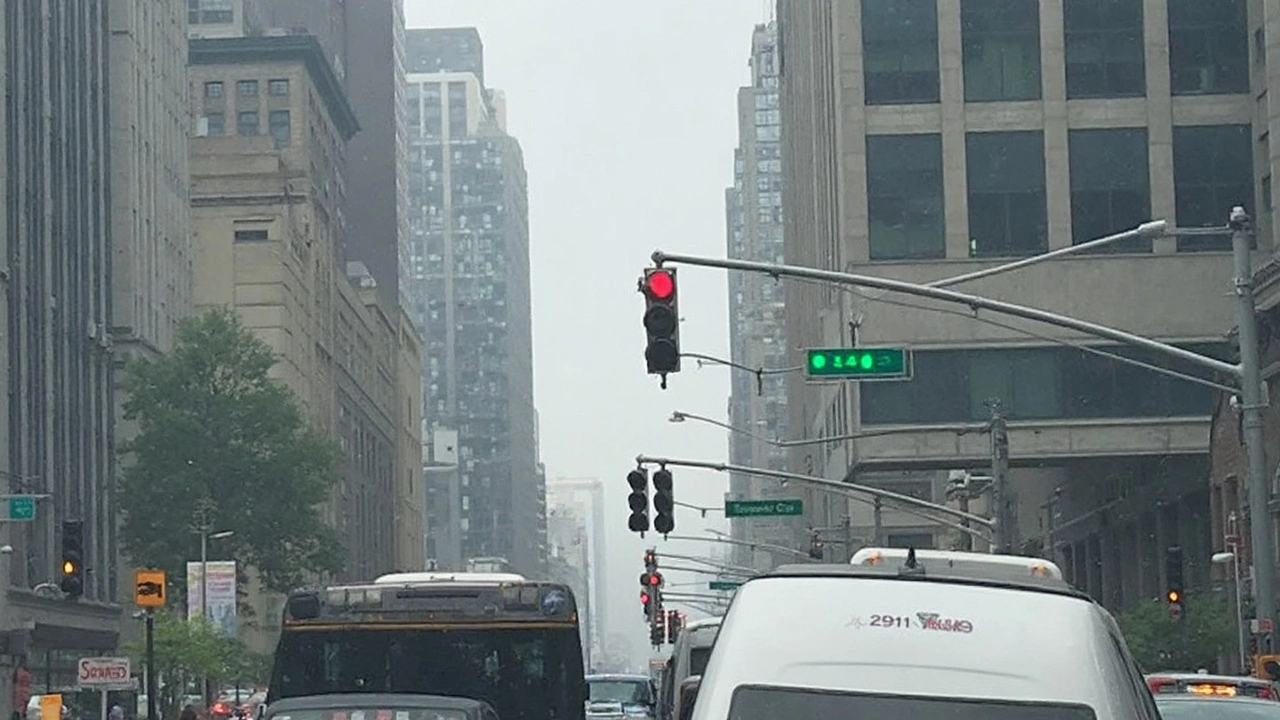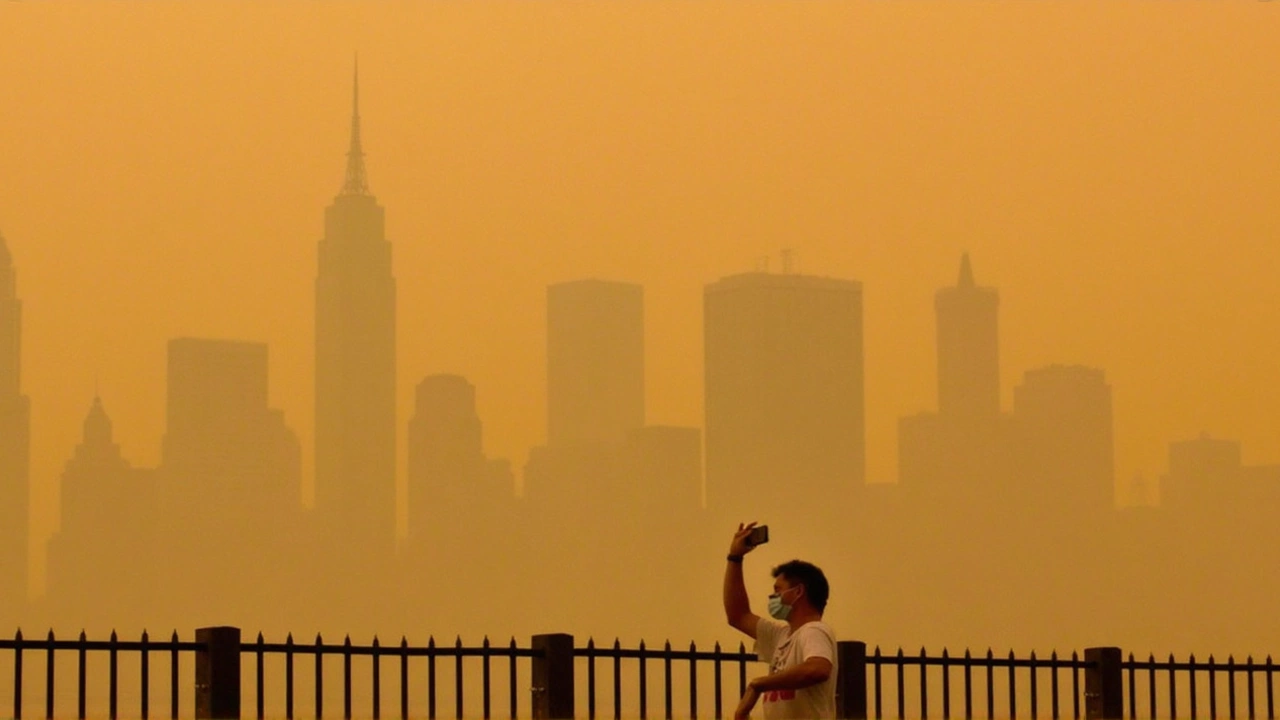Boston Chokes on Canadian Wildfire Smoke
Wake up in Boston and you might think you’re looking at fog, but that gray haze is actually wildfire smoke drifting hundreds of miles from Canada. This isn’t just a passing nuisance—the Air Quality Index, or AQI, shot above 100 on July 26, making the air officially "unhealthy for sensitive groups." That means if you’re older, have kids, or deal with asthma or heart trouble, the air could mess with your breathing or trigger symptoms you haven’t felt in a while.
How does smoke from wildfires all the way in Manitoba and Saskatchewan end up in New England? Blame the upper-level winds. These air currents pick up particles from fires blazing up north and drop them over cities like Boston. The result: hazy sunsets, burning eyes, and advice from health officials to rethink that afternoon jog.
The Massachusetts Department of Environmental Protection didn’t pull punches—they told people to stay inside, especially if you’re planning on strenuous activity outdoors. The danger comes from the tiny particles in the smoke, which can easily slip past your body’s usual defenses and settle deep in your lungs. That’s bad news for anyone with breathing conditions, but even healthy folks may notice a scratchy throat, coughing, or chest tightness.

Why This Smoke Sticks Around
If you’re wondering why the air isn’t clearing up, meteorologists pointed to the dry weather and specific wind patterns this week. Winds from the ocean have been keeping coastal towns a bit cooler, but they also trap smoke closer to the ground. Mornings seem to be the worst, with the thickest amounts of smoke, though by evening, things tend to get a bit clearer as weather patterns shift.
It’s not just Boston feeling the pinch—cities and towns across Massachusetts and Southern New England are in the same smoky boat. The air quality alerts stretched all across the region, and each update had the same message: check the AQI before stepping outside and talk to your doctor if you feel even the slightest hint of breathing problems or other symptoms.
- Monitor local air quality reports daily—AQI can change hour by hour.
- Keep windows closed and use air purifiers if possible, especially if you or someone in your home is at risk.
- If you have asthma or heart issues, make sure you’ve got medications handy.
This smoky episode won’t last forever, but for now, it’s a wake-up call about how events far away can affect day-to-day life in a major city. And for folks in Boston and the Northeast, that means keeping a close eye on what’s floating in the air—even if it’s coming from hundreds of miles away.

